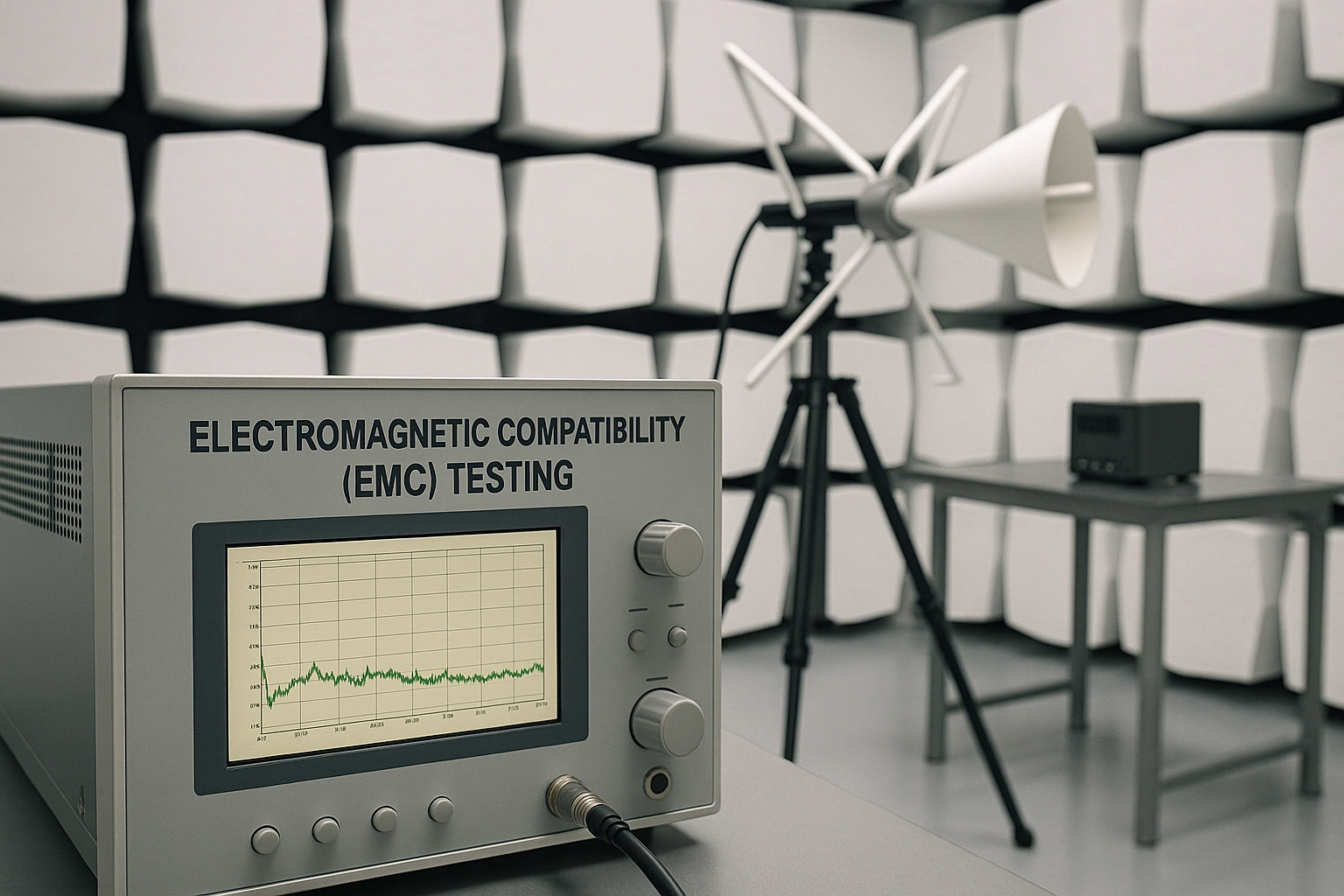ISO 26262 EMC Functional Safety Testing for Vehicles
The automotive industry has seen a significant shift in safety standards and protocols. ISO 26262, an international standard for functional safety of electrical and electronic systems in production automobiles, addresses the risks associated with electrical systems that could lead to accidents or injuries.
One critical aspect of this standard is Electromagnetic Compatibility (EMC) testing. EMC ensures that devices function as intended without causing unacceptable interference to other equipment. This service provides comprehensive ISO 26262 compliant EMC functional safety testing for vehicles, focusing on ensuring the safety and reliability of electrical systems in automobiles.
Our team of experts uses state-of-the-art equipment and follows stringent protocols to ensure that each test is conducted accurately and efficiently. From initial assessment to final report generation, we adhere to ISO 26262 guidelines to provide our clients with reliable and accurate results.
- Initial Assessment: We start by understanding the specific requirements of your vehicle or system. This includes reviewing design documentation, functional safety plans, and any other relevant information.
- Test Setup: Once the requirements are understood, we set up the appropriate test environment and equipment to replicate real-world conditions as closely as possible.
- Data Collection: Using advanced instrumentation, we collect data during various test scenarios. This includes measuring electromagnetic interference (EMI) levels under different operating conditions.
- Analytical Review: Our team of engineers reviews the collected data to determine compliance with ISO 26262 and other relevant standards.
- Report Generation: Based on our analysis, we generate a detailed report that outlines any non-compliances identified during testing. Recommendations for corrective actions are also provided in this report.
The primary goal of ISO 26262 EMC functional safety testing is to ensure that the electrical and electronic systems within vehicles meet stringent safety requirements set forth by international standards. By doing so, we help manufacturers comply with these regulations while enhancing overall vehicle safety.
In addition to ensuring compliance with international standards, our service also focuses on reducing risks associated with electromagnetic interference (EMI). EMI can cause malfunctions in critical systems such as braking and steering mechanisms, which could lead to accidents. By identifying potential issues early in the development process, we contribute significantly towards preventing these hazards.
Our approach goes beyond mere compliance; it aims at creating safer vehicles by addressing root causes of potential problems rather than just treating symptoms. This proactive stance ensures that our clients benefit from improved product quality and increased customer satisfaction.
Scope and Methodology
The scope of this service includes all aspects related to ISO 26262 EMC functional safety testing for vehicles. It encompasses the entire lifecycle of a vehicle's electronic components, ensuring they meet specified levels of electromagnetic compatibility throughout their operational lifetime.
In terms of methodology, our team follows internationally recognized standards such as ISO 26262 and IEC 61967-3 when conducting EMC tests. These guidelines provide clear instructions on how to perform various types of tests under different environmental conditions, ensuring consistent results across multiple sites worldwide.
Our approach involves several key steps:
- Environmental Assessment: We evaluate the natural and man-made electromagnetic environments where your vehicle or system will operate. This helps us determine appropriate test procedures for simulating these conditions accurately.
- Test Setup: Depending on the type of environment identified, we configure our facilities accordingly to mimic real-world scenarios as closely as possible.
- Data Collection: High-resolution sensors and specialized software are used during testing to gather precise measurements. This ensures accurate data that can be analyzed effectively later.
- Analytical Review: Skilled engineers analyze the collected data against predefined limits specified in ISO 26262 to assess compliance levels accurately.
- Reporting: After completing all tests, detailed reports are prepared summarizing findings and recommendations. These documents serve as valuable references for future improvements or modifications if necessary.
This structured methodology ensures that every aspect of EMC testing is covered comprehensively, providing thorough insights into your vehicle's electromagnetic compatibility status.
Quality and Reliability Assurance
At our laboratory, we place great emphasis on maintaining high standards of quality and reliability in all our services. For ISO 26262 EMC functional safety testing for vehicles, this commitment translates into rigorous adherence to international standards such as ISO 26262 and IEC 61967-3.
We employ a team of highly qualified professionals who are well-versed in both theoretical knowledge and practical application. Our technicians undergo continuous training to stay updated with the latest developments in the field, ensuring that our practices remain cutting-edge at all times.
Our facilities are equipped with top-notch equipment designed specifically for EMC testing according to ISO 26262 requirements. These tools allow us to conduct precise measurements across a wide range of frequencies and power levels, providing accurate results every time.
To further enhance reliability, we implement strict quality control measures throughout the entire testing process. This includes regular calibration checks on all instruments used during tests, ensuring that they remain calibrated correctly over extended periods.
Moreover, our ISO 26262 EMC functional safety testing services come with a comprehensive warranty guaranteeing accurate results and adherence to specified standards. Should any discrepancies arise post-testing due to equipment failure or human error, we will retest free of charge until satisfactory outcomes are achieved.





